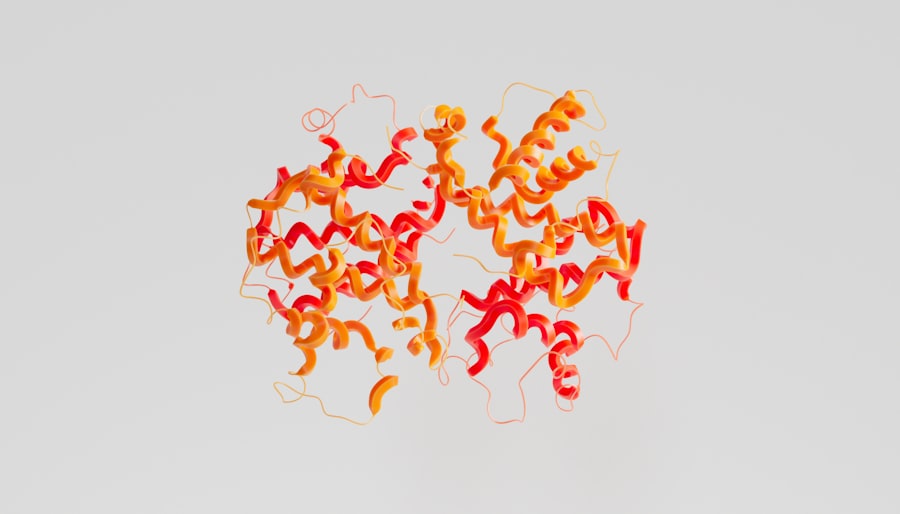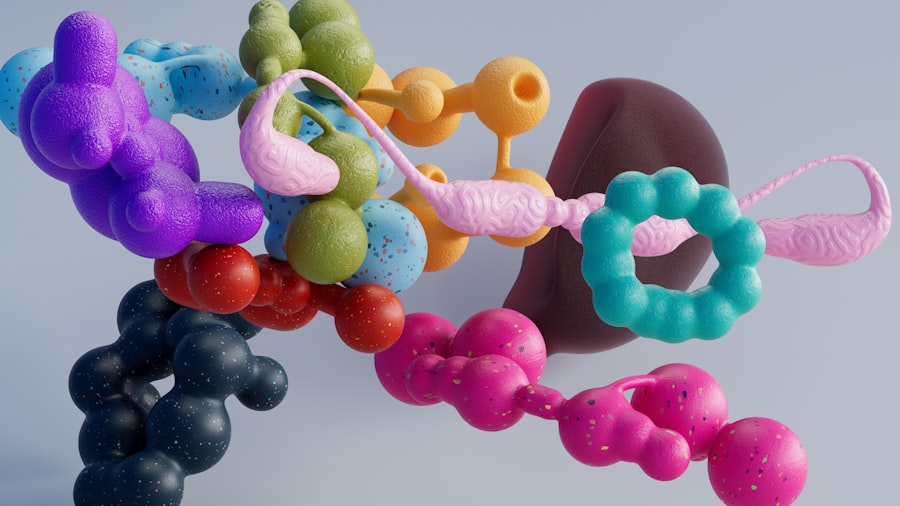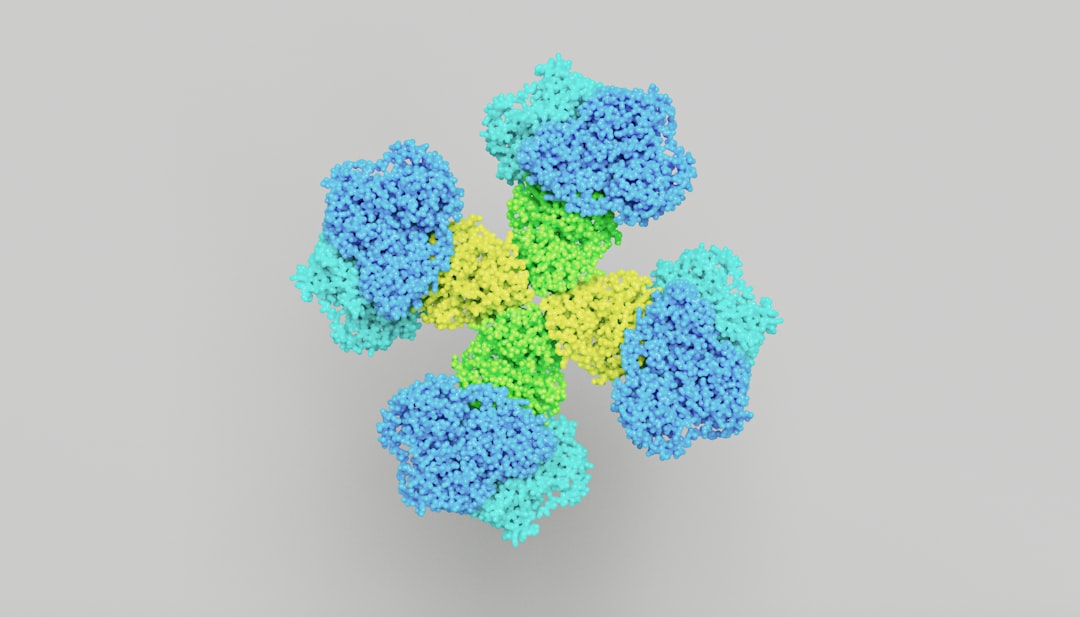Infant protein expression is a critical area of study that delves into the complex biochemical processes occurring in the early stages of human life. Proteins, which are essential macromolecules, play a pivotal role in various physiological functions, including growth, immune response, and cellular repair. During infancy, the body undergoes rapid development, necessitating a precise balance of protein synthesis and degradation.
Understanding how proteins are expressed in infants can provide valuable insights into their health and development, as well as inform strategies for optimizing nutrition and care. The study of infant protein expression encompasses a range of disciplines, including genetics, biochemistry, and nutrition. Researchers aim to unravel the intricate mechanisms that govern protein synthesis in infants, exploring how these processes are influenced by genetic predispositions and environmental factors.
By examining the nuances of protein expression during this critical period, scientists can better understand the foundations of health and disease that may persist throughout an individual’s life.
Key Takeaways
- Infant protein expression is crucial for early growth, influenced by genetics and environmental factors.
- Breastfeeding and maternal nutrition significantly affect the protein expression profiles in infants.
- Altered protein expression in infancy may have long-term health implications, including allergy development.
- Advanced techniques enable detailed study of protein expression patterns in infants.
- Ongoing research aims to optimize infant protein expression for improved developmental outcomes.
The Role of Genetics in Infant Protein Expression
Genetics plays a fundamental role in determining the patterns of protein expression in infants. Each individual inherits a unique set of genes from their parents, which encode the instructions for synthesizing proteins. These genetic blueprints influence not only the types of proteins produced but also the timing and quantity of their expression.
Variations in specific genes can lead to differences in protein synthesis, impacting an infant’s growth and overall health. Moreover, genetic factors can interact with environmental influences to shape protein expression. For instance, certain genetic variants may predispose infants to respond differently to dietary proteins or other external stimuli.
This interplay between genetics and environment underscores the complexity of protein expression and highlights the need for personalized approaches to infant nutrition and care. Understanding these genetic influences can help healthcare providers tailor interventions that support optimal growth and development in infants.
Factors Influencing Infant Protein Expression

Several factors contribute to the regulation of protein expression in infants, including age, nutrition, and hormonal changes. As infants grow, their protein needs evolve, necessitating adjustments in dietary intake to support their developmental milestones. The composition of an infant’s diet—whether breast milk or formula—can significantly influence the types and amounts of proteins expressed in their bodies.
In addition to nutritional factors, hormonal changes also play a crucial role in regulating protein expression. Hormones such as insulin and growth factors are involved in signaling pathways that promote protein synthesis and cellular growth. These hormonal signals can be influenced by various factors, including stress, illness, and overall health status.
Understanding how these diverse factors interact to influence protein expression is essential for developing effective strategies to support infant health.
The Importance of Infant Protein Expression for Growth and Development
| Metric | Description | Typical Range/Value | Significance for Infant Growth |
|---|---|---|---|
| Protein Intake (g/kg/day) | Amount of protein consumed per kilogram of infant body weight daily | 1.5 – 2.2 g/kg/day | Supports muscle and tissue development, essential for growth |
| Serum Albumin Levels (g/dL) | Concentration of albumin protein in infant blood serum | 3.5 – 5.0 g/dL | Indicator of nutritional status and protein synthesis efficiency |
| Insulin-like Growth Factor 1 (IGF-1) (ng/mL) | Hormone influenced by protein intake that promotes growth | 20 – 100 ng/mL (varies with age) | Stimulates cell growth and development, critical in infancy |
| Weight Gain (g/day) | Average daily weight increase in infants | 20 – 30 g/day (first 6 months) | Reflects adequate nutrition and protein utilization |
| Muscle Protein Synthesis Rate (%/day) | Rate at which new muscle proteins are produced | 1.5 – 2.5% per day | Essential for muscle growth and overall development |
| Essential Amino Acid Levels (µmol/L) | Concentration of key amino acids in blood plasma | Varies by amino acid; e.g., Leucine: 100 – 200 µmol/L | Necessary for protein synthesis and metabolic functions |
The significance of protein expression during infancy cannot be overstated. Proteins are involved in virtually every biological process, from building tissues to facilitating metabolic reactions.
Research has shown that insufficient protein expression during infancy can lead to adverse health outcomes, including stunted growth and increased susceptibility to infections. Conversely, optimal protein expression supports healthy weight gain and cognitive development. Therefore, understanding the mechanisms that regulate protein expression is vital for promoting healthy growth trajectories in infants and preventing long-term health issues.
Differences in Protein Expression between Breastfed and Formula-fed Infants
The mode of feeding—whether breastfeeding or formula feeding—has been shown to influence protein expression patterns in infants significantly. Breast milk contains a unique composition of proteins, antibodies, and bioactive compounds that are tailored to meet the specific needs of a growing infant. These components not only support immediate nutritional requirements but also play a role in shaping the infant’s immune system and gut microbiome.
In contrast, formula-fed infants receive a standardized mixture of proteins that may not fully replicate the complexity of breast milk. While infant formulas are designed to provide adequate nutrition, they may lack certain bioactive components found in breast milk that contribute to optimal protein expression. Studies have indicated that breastfed infants often exhibit different patterns of protein expression compared to their formula-fed counterparts, which may have implications for their long-term health outcomes.
The Impact of Maternal Nutrition on Infant Protein Expression

Maternal nutrition is a critical determinant of infant protein expression. The nutritional status of a mother during pregnancy and lactation directly influences the quality and quantity of nutrients available to the developing infant. Adequate maternal intake of proteins, vitamins, and minerals is essential for supporting fetal growth and ensuring that breast milk provides optimal nutrition postnatally.
Deficiencies in maternal nutrition can lead to altered protein expression patterns in infants, potentially affecting their growth and development. For example, inadequate intake of essential fatty acids or amino acids can hinder the synthesis of key proteins necessary for brain development or immune function. Therefore, promoting maternal health through proper nutrition is vital for ensuring that infants receive the best possible start in life.
The Potential Long-term Effects of Altered Infant Protein Expression
Altered patterns of protein expression during infancy can have lasting effects on an individual’s health throughout their life. Research suggests that deviations from optimal protein expression may contribute to the development of chronic diseases later in life, including obesity, diabetes, and cardiovascular conditions. The early programming of metabolic pathways during infancy sets the stage for future health outcomes.
Furthermore, altered protein expression may influence cognitive development and behavioral outcomes as well. Infants who experience disruptions in protein synthesis may face challenges related to learning and memory later on. Understanding these long-term implications emphasizes the importance of monitoring and supporting healthy protein expression during infancy as a means of promoting lifelong health.
Techniques for Studying Infant Protein Expression
Studying infant protein expression involves a variety of advanced techniques that allow researchers to analyze proteins at different levels. Mass spectrometry is one such method that enables the identification and quantification of proteins within biological samples.
Additionally, techniques such as Western blotting and enzyme-linked immunosorbent assays (ELISAs) are commonly used to assess specific proteins of interest. These methods allow researchers to investigate how factors like diet or genetics influence protein levels in infants. By employing these diverse techniques, scientists can gain a comprehensive understanding of infant protein expression and its implications for health.
The Relationship between Infant Protein Expression and Allergies
Emerging research has begun to explore the relationship between infant protein expression and the development of allergies. It is believed that the proteins present during early life play a crucial role in shaping immune responses. Infants exposed to certain dietary proteins may develop tolerance or sensitization based on how their bodies express these proteins.
For instance, studies have indicated that early exposure to allergenic foods may influence protein expression patterns related to immune function. Infants who experience altered protein expression due to dietary factors may be at an increased risk for developing allergies later on. Understanding this relationship is essential for developing guidelines around infant feeding practices that could mitigate allergy risk.
Strategies for Optimizing Infant Protein Expression
To optimize infant protein expression, several strategies can be employed by caregivers and healthcare providers alike. Ensuring that infants receive adequate nutrition tailored to their developmental needs is paramount. For breastfeeding mothers, maintaining a balanced diet rich in essential nutrients can enhance the quality of breast milk and support optimal protein synthesis in their infants.
For formula-fed infants, selecting high-quality formulas that closely mimic breast milk composition can also promote healthy protein expression. Additionally, monitoring growth patterns and developmental milestones can help identify any potential issues early on, allowing for timely interventions if necessary. By prioritizing nutrition and monitoring growth closely, caregivers can play a significant role in optimizing infant protein expression.
Future Research Directions in Infant Protein Expression
The field of infant protein expression is ripe for further exploration as researchers continue to uncover new insights into this complex area of study. Future research may focus on understanding the specific mechanisms by which genetic variations influence protein expression patterns in diverse populations. Additionally, investigating how environmental factors—such as exposure to pollutants or dietary changes—affect protein synthesis could provide valuable information for public health initiatives.
Moreover, there is a growing interest in exploring the role of the gut microbiome in regulating protein expression during infancy. As research continues to evolve, it will be essential to integrate findings from various disciplines to develop comprehensive strategies aimed at promoting optimal infant health through targeted interventions related to protein expression. In conclusion, understanding infant protein expression is crucial for supporting healthy growth and development during one of life’s most formative stages.
By examining the interplay between genetics, nutrition, and environmental factors, researchers can develop strategies that optimize health outcomes for infants now and into adulthood.
Recent studies have highlighted the phenomenon of unexplained protein expression in infants, raising questions about its implications for early development and health. For a deeper understanding of related findings in this area, you can explore the article on the topic at XFile Findings. This resource provides valuable insights into the complexities of protein expression and its potential effects on infant health.
WATCH THIS! The Tall Whites Agenda: The Secret War to Genetically Edit Humanity
FAQs
What does unexplained protein expression in infants mean?
Unexplained protein expression in infants refers to the detection of certain proteins in an infant’s body that cannot be readily linked to known genetic, environmental, or medical causes. This phenomenon may indicate underlying biological processes that are not yet fully understood.
How is protein expression measured in infants?
Protein expression in infants is typically measured using laboratory techniques such as immunoassays, Western blotting, or mass spectrometry. These methods analyze blood, tissue, or other biological samples to detect and quantify specific proteins.
What could cause unexplained protein expression in infants?
Possible causes include genetic mutations, developmental abnormalities, infections, or unknown environmental factors. Sometimes, protein expression may be transient or related to normal developmental stages that are not yet fully characterized.
Is unexplained protein expression harmful to infants?
Not necessarily. Some unexplained protein expressions may be benign or part of normal development. However, in some cases, abnormal protein expression could be associated with disease or developmental disorders, requiring further medical evaluation.
How do doctors investigate unexplained protein expression in infants?
Doctors may perform additional diagnostic tests such as genetic screening, metabolic panels, imaging studies, and clinical assessments to determine the cause and significance of the protein expression.
Can unexplained protein expression in infants be treated?
Treatment depends on the underlying cause. If a specific condition is identified, targeted therapies may be available. In cases where the cause remains unknown, monitoring and supportive care are often recommended.
Is unexplained protein expression common in infants?
It is relatively uncommon but not rare. Advances in diagnostic technologies have increased the detection of unusual protein expressions, some of which remain unexplained.
Should parents be concerned about unexplained protein expression in their infant?
Parents should discuss any abnormal test results with their pediatrician or a specialist. While some findings may not be cause for concern, professional evaluation is important to rule out potential health issues.
Are there ongoing studies about unexplained protein expression in infants?
Yes, researchers continue to study protein expression patterns in infants to better understand developmental biology and identify markers for diseases, aiming to improve diagnosis and treatment options.
